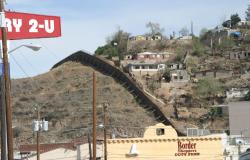
In this paper, I examine the preservation thesis, according to which liberal democratic states can restrict the entry of illiberal immigrants to preserve the existence and functioning of liberal democratic institutions. The most reasonable version of the preservation thesis maintains that a liberal democratic state can accept illiberal immigrants as long as the acceptance will not exceed its capacity to accommodate the illiberal people under its jurisdiction. The preservation thesis relies on the assumption that a liberal democratic state should first allow its own illiberal citizens to stay in its territory and then leave illiberal immigrants to compete with each other for the limited opportunities to enter, even though illiberal citizens and illiberal immigrants pose the same challenge for the preservation of liberal democratic institutions. After examining three arguments based on humanitarianism, social ties and political ties to defend this assumption, I argue that these defenses fall victim to the problems of insufficiency and circularity. Therefore, the preservation thesis rests on a precarious ground.
Policy Implications
- Illiberal immigrants are immigrants who do not support and may take actions to endanger liberal democratic values, rather than immigrants from illiberal societies or merely not believing in liberal democratic values.
- Democratic countries need to explain illiberal citizens’ priority over illiberal immigrants regarding the chance to enter and stay.
- The illiberal citizens’ priority over illiberal immigrants cannot sufficiently be defended by humanitarian considerations, the importance of preserving existing social relationships, and the exercise of ownership over public goods.
- The denial of entry to illiberal immigrants harms them by disrupting their prospective relationships with citizens of destined countries.